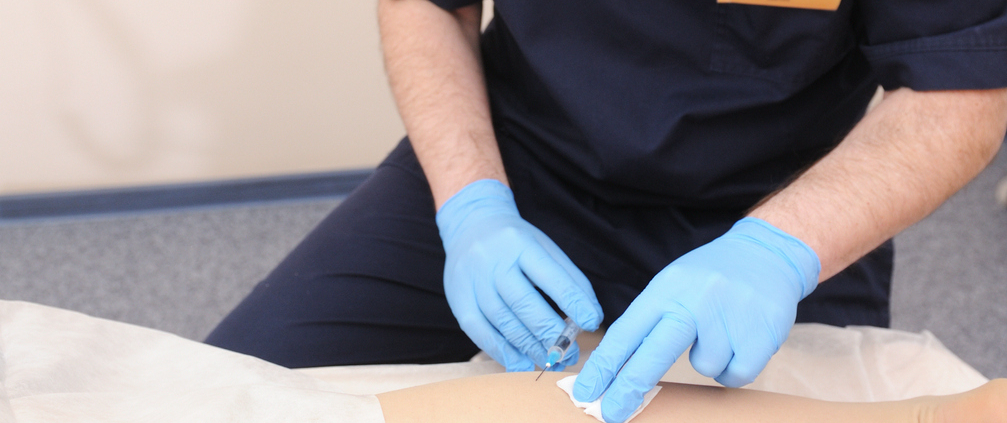How Sclerotherapy Treats Varicose Veins
While some people might think of varicose veins as a cosmetic concern, these blue and purplish veins can pose health complications. If left untreated, varicose veins can cause chronic inflammation, ulcers, and blood clots.
Fortunately, doctors can treat varicose veins. You may have read about sclerotherapy while searching for a fast and permanent solution. But how can this treatment help you? Read on to find out.
How Sclerotherapy Works
Doctors have been using sclerotherapy for varicose veins since the 1930s. During this procedure, your doctor will inject a solution into the veins in your leg. Some agents may include anesthetics to make you feel more comfortable.
The liquid agent forces the vein to collapse and gradually close. Thus, blood can no longer pool or even pass through the treated veins. Instead, it will naturally be rerouted to healthier veins. In time, the varicose veins will then disappear and get reabsorbed in nearby tissues.
Your doctor can also use ultrasound technologies during sclerotherapy. During this image-guided procedure, sound waves produce an image of the vein that may not be easily visible on the surface. Your doctor can then inject the solution with greater accuracy and trace the path of the sclerosing agent.
Vein specialists usually derive sclerotherapy solutions from:
- Osmotic agents
- Detergents
- Irritants
Osmotic Agents
Osmotic agents commonly take the form of dextrose or hypertonic saline solutions. They work by dehydrating the cells of the affected veins. Osmotic agents have low toxicity. However, they affect only the sites of injection and can be painful when injected.
Detergents
Detergents work through a complex process known as protein theft denaturation. This disrupts cell surfaces leading to the breakdown of affected veins. This mechanism makes it possible to reach areas far from the injection site.
Unlike osmotic agents, detergents come in either liquid or foam and can easily be diluted or concentrated. Your doctor may use ultrasound imaging to improve the accuracy of the injection.
Irritants
Lastly, sclerotherapy can use a variety of mild irritant or corrosive solutions to target affected veins.
The substance injected into the vein will depend on your doctor. Here are the most commonly used and FDA-approved solutions:
- Hypertonic saline (osmotic agent)
- Sodium tetradecyl sulfate (detergent)
- Polidocanol (detergent)
- Glycerin (mild irritant)
- Lidocaine (mild irritant)
- Epinephrine (mild irritant)
Pros and Cons of Sclerotherapy
The effects of sclerotherapy are not immediate. To prolong treatment results, you can follow healthy tips to take care of your veins. Your doctor will check on you a month after the treatment to determine if you need more sessions. You can schedule another session six weeks after your previous treatment.
It’s important to note that sclerotherapy is just one of many options you can consider. The exact type of procedure you will need will vary based on your unique needs. That said, this particular form of injection treatment has some advantages.
First, let’s compare it with microphlebectomy. Both treatments deliver lasting results. However, microphlebectomy, or ambulatory phlebectomy, is a much more invasive procedure. It requires that your doctor make small incisions on the skin to treat varicose veins. Since it is more invasive than sclerotherapy, you may take a longer time to recover.
Laser therapy is also another way to remove more prominent varicose veins. However, it also requires numerous treatments for visible results. You may need treatments every 6-12 weeks for this treatment.
Despite its advantages, sclerotherapy also has its limitations. While doctors may recommend it for smaller varicose veins and spider veins, it may not be as effective on larger veins. Some conditions and situations can also affect the effectiveness of this treatment. These individuals may not be a good candidate for sclerotherapy:
- Pregnant or breastfeeding women
- Bedridden individuals
- People with a history of severe blood clots
- Smokers
Sclerotherapy Near Me in Missouri
Overall, sclerotherapy is an effective treatment for varicose veins. It only has minimal risks, which can be limited when you consult with a certified vein specialist.
If you’re still searching ‘sclerotherapy near me’, then our clinic can help. Here at Missouri Vein Specialists, we have one of the first-ever venous and lymphatic medicine specialists. We offer a diverse range of treatments, including sclerotherapy. For our sclerotherapy treatment, we use liquid and foam agents and ultrasound technology to improve the precision of the injection.
Our clinics are conveniently located in Kansas City and Marshall, Missouri. You can call 816-792-3400 for any inquiries. To set an appointment, you can fill out our online contact form. We look forward to keeping your veins healthy!












